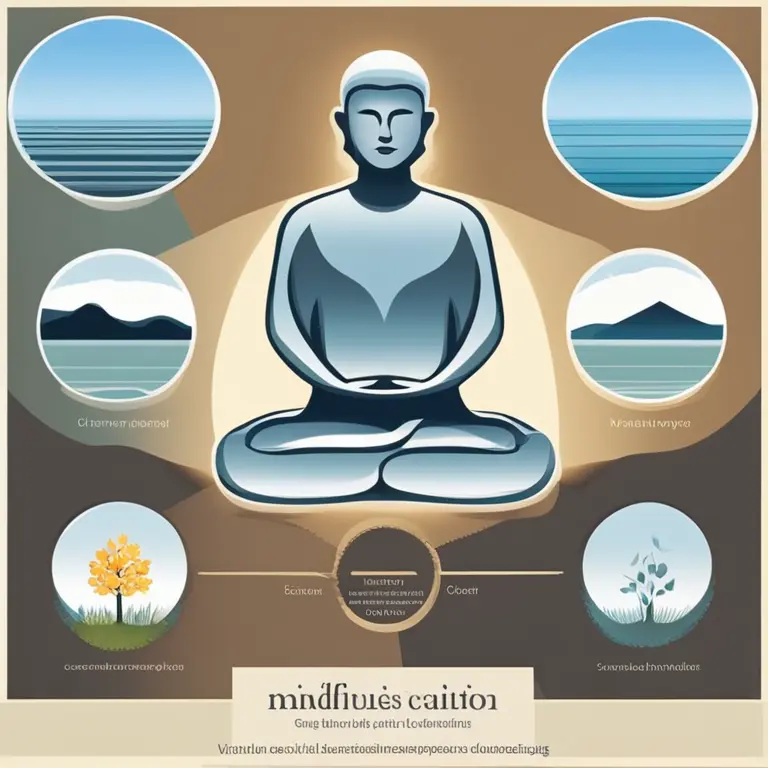
The fundamentals of Mindful Meditation
Discover the fundamentals of mindful meditation in this beginner's guide, and embark on a journey towards inner peace and clarity.
article by Hina Kurosawa
Introduction to Mindfulness
Mindfulness meditation is an ancient practice that has gained significant popularity in the modern world for its numerous benefits to mental and emotional well-being. It involves paying full attention to the present moment, accepting it without judgment, and fostering a sense of awareness. For beginners taking their first steps into this practice, understanding the core principles can pave the way towards a more centered and peaceful state of being, even amidst the turbulence of contemporary life.

Setting Up Your Space
Before diving into the meditation process, it's essential to create a tranquil environment that minimizes distractions. Find a quiet spot where you won't be disturbed, use comfortable seating or cushions, and consider dimming the lights or using candles to set a calming atmosphere. Suitable ambiance is crucial for maintaining focus and can significantly enhance your meditative experience.

Beginning Your Practice
To commence your meditation, sit comfortably with your back straight, yet relaxed. Close your eyes lightly, and bring your focus to your breath. Inhale and exhale naturally, observing the sensation of the breath as it enters and exits your body. Should your mind wander, gently acknowledge the distraction and redirect your attention back to your breathing. This simple act of return is the heart of mindfulness practice.

Embracing Mindfulness Throughout the Day
Mindfulness is not confined to your meditation cushion; it can be weaved into the fabric of your daily life. Try incorporating moments of awareness during routine activities like eating, walking, or even during conversations. The key is to remain fully present in the current activity, engaging all your senses, and anchoring yourself in the now.
Overcoming Common Challenges
As a beginner, you may encounter difficulties such as restlessness, impatience, or a mind brimming with thoughts. It's important to instead realize that these challenges are part of the journey. Each time you steer your focus back to the present moment, you strengthen your mindfulness muscles. With consistent practice, these obstacles will become less daunting, and your concentration will improve.
The Path Ahead
Your journey in mindfulness meditation is uniquely yours, and growth takes time. Start with short sessions of 5-10 minutes daily and gradually increase the duration as you feel more comfortable. Remember, it's less about perfecting a technique and more about fostering an attentive, non-judgmental awareness of each moment.
Mindfulness in the Digital Age
In our hyper-connected world, numerous apps and online resources are available to support your meditation practice. Utilize these tools to find guided sessions, trackers for consistency, or communities for encouragement. However, let technology be an aid, not a distraction. Your mindfulness journey is ultimately about fostering a deep, personal connection with yourself.
Published: 1/18/2024
Modified: 1/18/2024
More predictions
Come back here soon to learn more about yourself and your future


Can Meditation Impact On Depression?
Meditation can be a powerful tool for mental health. Discover whether incorporating a meditation practice can alleviate depressive symptoms.


Exploring Meditation in Psychological Practice
Delve into the psychological perspective on meditation, its benefits, and applications in modern mental health practices.


How Meditation Reshapes Our Brains
Discover the transformative power of meditation and its profound impact on brain structure and function in this insightful article.